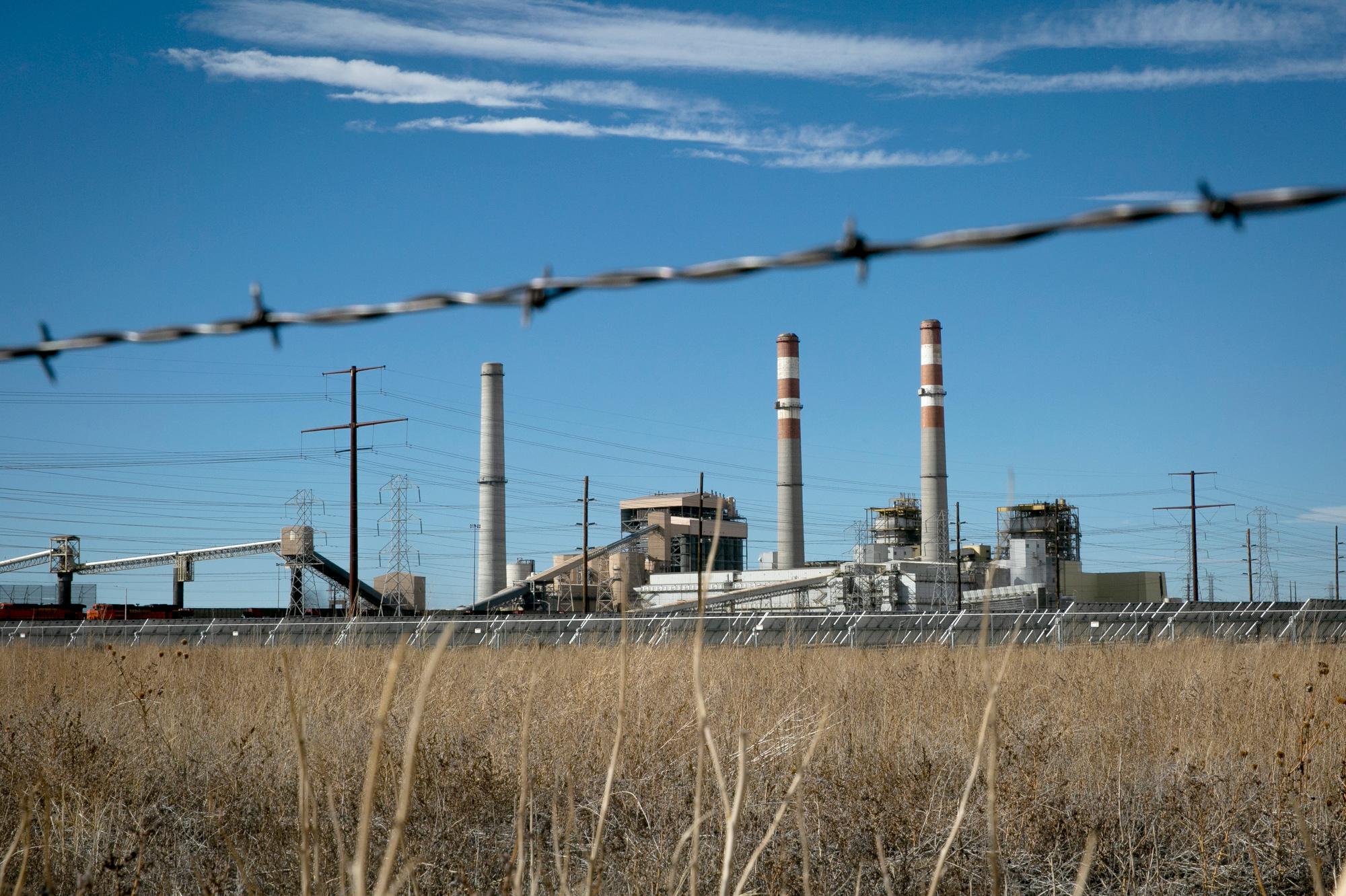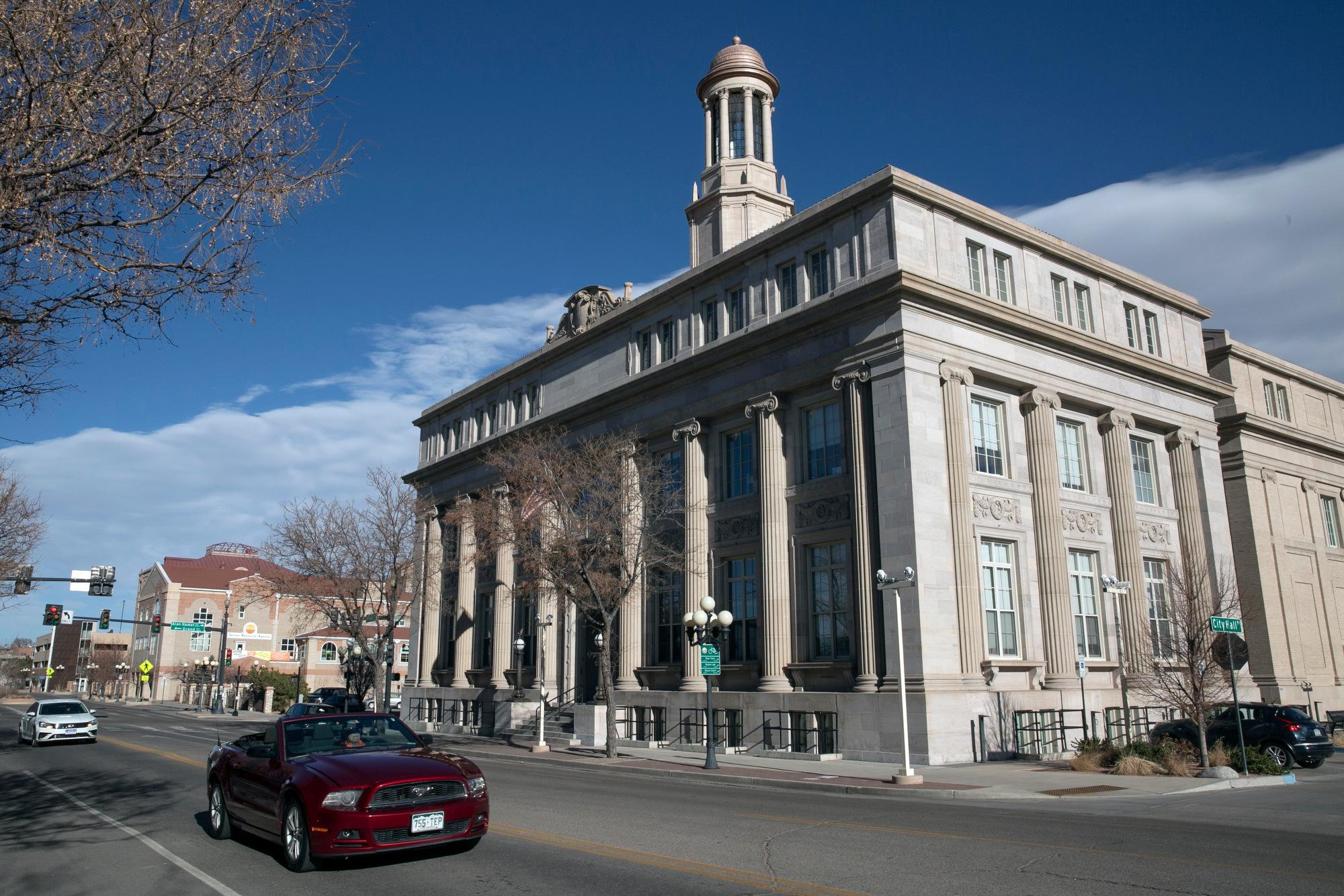
Colorado regulators will kick off a series of hearings Wednesday that could determine how the state’s largest utility generates its energy in the coming decades — and how much it will contribute to global warming.
Xcel Energy, which supplies electricity to 1.5 million people across Colorado, announced plans to phase out its remaining coal plants earlier this year and instead rely more on natural gas, renewable energy, and emerging technology such as hydrogen power.
The utility’s plans came as the state, pushed by activists and environmental groups, set a goal to slash its greenhouse gas emissions by half of its 2005 levels by the end of the decade. Increased urgency to prevent the worst effects of human-caused global warming pressured Xcel to close its coal plants sooner than it originally planned, including the Comanche Generating Station, one of the state’s single-largest sources of carbon emissions.
Xcel and other groups, including the city and county of Pueblo, unions and state agencies, agreed last month to close Comanche’s newest coal-fired unit by 2035. The move could cut Xcel’s emissions by nearly 90 percent this decade — but would likely require additional investment to replace and cut short millions in property taxes it was paying to Pueblo. Major environmental groups like Western Resource Advocates and Sierra Club did not sign the agreement, saying it did not go far or fast enough to cut emissions.
The Colorado Public Utilities Commission, a three-member body appointed by the governor, will preside over the hearings, scheduled through Dec. 17. The commission could decide the fate of Xcel’s coal plants as early as February.
Several groups are expected to testify in the coming days. Here’s where they stand:
Xcel Energy
Xcel, which initiated the settlement discussions, has faced constant backlash for its management of Comanche’s newest coal-fired unit, Comanche 3. Despite nearly two cumulative years of unplanned shutdowns, the company pushed against closing the plant by 2030. Xcel-Colorado President Alice Jackson said the company needed more time for emerging technologies to develop before they could become a part of the grid. Jackson said the agreement balances the needs of the company, customers and Pueblo, where the Comanche plant is located.
Environmental groups
Environmental groups and coalitions did not support closing Comanche by 2035, stressing the need to stop burning fossil fuels as soon as possible to slow down the rate of global warming. A Sierra Club representative denounced a clause in the agreement that would allow Xcel to own at least $626 million of generation from the coal-fired unit’s replacement. Gwen Farnsworth, the managing senior policy advisor for Western Resource Advocates, said that while there were important compromises in the agreement, it would lead Xcel to acquire more natural gas resources.
Pueblo
The city and county of Pueblo have expressed frustration that Xcel moved up Comanche’s retirement date, saying they were expecting the company to pay property taxes through 2070. Despite efforts to keep Xcel paying that needed revenue — and a flashy ultimatum that it build a nuclear plant in its stead — the two government bodies supported the agreement. Xcel does not provide electricity to Pueblo; residents have complained about having to bear the brunt of the plant’s pollution.
Labor groups
Several unions have joined the agreement, including the International Brotherhood of Electrical Workers, the Rocky Mountain Environmental Labor Coalition and the Colorado Building and Construction Trade Council. The International Brotherhood of Electrical Workers had supported Xcel’s earlier plan to close Comanche by 2040, saying it would be less abrupt for the plant’s employees. It had told state regulators that jobs installing wind and solar power projects were low-paying and temporary and was one of the few groups that supported Pueblo County’s proposal for a nuclear plant.
State agencies
The Colorado Office of the Utility Consumer Advocate, Colorado Energy Office and the Colorado Public Utilities Commission’s own staff joined the settlement. “We think that it meets our major goals,” said Keith Hay, director of policy for the Colorado Energy Office. “It achieves earlier greenhouse gas emissions reductions, it achieves more greenhouse gas emissions reductions by 2030, but just as importantly, it provides security to the city and county of Pueblo.”
Trade groups
Trade groups are divided on their support of the settlement, even within the renewable energy industry. The Colorado Solar and Storage Association and Solar Energy Industries Association joined the agreement; the Colorado Renewable Energy Society did not. Several energy organizations also did not join, including the CORE Electric Cooperative and Interwest Energy Alliance. The Colorado Oil and Gas Association, which represents oil and gas operators, signed on to the agreement.
- Winter is coming, and so are the utility bill hikes for natural gas customers
- Pueblo is preparing for a future without coal. Its residents have thoughts on how and when to do it
- The State Says It’s On Track To Reduce Emissions From Electricity. It Is Less Sure About The Transportation And Oil And Gas Sector









